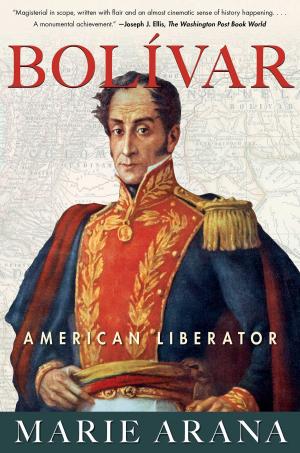Elihu Washburne
The Diary and Letters of America's Minister to France During the Siege and Commune of Paris
Nonfiction, History, France, Americas, United States, 19th Century| Author: | Michael Hill | ISBN: | 9781451665314 |
| Publisher: | Simon & Schuster | Publication: | November 6, 2012 |
| Imprint: | Simon & Schuster | Language: | English |
| Author: | Michael Hill |
| ISBN: | 9781451665314 |
| Publisher: | Simon & Schuster |
| Publication: | November 6, 2012 |
| Imprint: | Simon & Schuster |
| Language: | English |
This is the remarkable and inspiring story—told largely in his own words— of American diplomat Elihu Washburne, who heroically aided his countrymen and other foreign nationals when Paris was devastated by war and revolutionin1870–71.
Elihu Washburne rose from a hardscrabble existence in New England and the Midwest to become a congressman and diplomat. A confidante of Lincoln and Grant during the Civil War, Washburne was appointed Minister to France by Grant in 1869, arriving in Europe shortly before the outbreak of the Franco- Prussian War. When Bismarck ordered the Prussian army to lay siege to Paris, intent on forcing the French to surrender, Minister Washburne—alone among major power diplomats—remained at his post, determined to protect Americans and German nationals trapped in Paris. After the French capitulation, new horrors struck Paris. The government was toppled by a band of violent revolutionaries, known as the Commune, who embarked on a reign of terror that filled the streets with blood. Once again, Washburne stepped forward to help wherever he could until the Commune collapsed and its bloody orgy ended.
During his ordeal Washburne endured cannon bombardments, brutally cold weather, dwindling food supplies, bouts of ill health, and long separations from his family. He witnessed the plight of starving women and children, riots in the streets, senseless executions, and countless acts of unspeakable violence and bloodshed.
In the midst of it all, Washburne kept a remarkable personal diary that chronicled the monumental events swirling about him. He knew he was at the center of history and was determined to record what he saw. The diary—and letters he wrote to family and officials in Washington—provides a vivid personal account of life during some of Paris’s darkest days. Filled with political and military insight, Washburne’s writings also have an unmistakable charm, at times blending homespun expressions with quotations from Shakespeare and the Bible.
Michael Hill provides essential background information and historical context to the excerpts from Washburne’s diary and letters, which are drawn from the original manuscript sources and collected into one volume for the first time. Through his own words, we come to know and admire Washburne as he struggles to stay alive, perform his duty, and not let his country down. The story of Elihu Washburne is a great American story—the tale of an American hero rising to greatness in the midst of difficult and extraordinary times.
This is the remarkable and inspiring story—told largely in his own words— of American diplomat Elihu Washburne, who heroically aided his countrymen and other foreign nationals when Paris was devastated by war and revolutionin1870–71.
Elihu Washburne rose from a hardscrabble existence in New England and the Midwest to become a congressman and diplomat. A confidante of Lincoln and Grant during the Civil War, Washburne was appointed Minister to France by Grant in 1869, arriving in Europe shortly before the outbreak of the Franco- Prussian War. When Bismarck ordered the Prussian army to lay siege to Paris, intent on forcing the French to surrender, Minister Washburne—alone among major power diplomats—remained at his post, determined to protect Americans and German nationals trapped in Paris. After the French capitulation, new horrors struck Paris. The government was toppled by a band of violent revolutionaries, known as the Commune, who embarked on a reign of terror that filled the streets with blood. Once again, Washburne stepped forward to help wherever he could until the Commune collapsed and its bloody orgy ended.
During his ordeal Washburne endured cannon bombardments, brutally cold weather, dwindling food supplies, bouts of ill health, and long separations from his family. He witnessed the plight of starving women and children, riots in the streets, senseless executions, and countless acts of unspeakable violence and bloodshed.
In the midst of it all, Washburne kept a remarkable personal diary that chronicled the monumental events swirling about him. He knew he was at the center of history and was determined to record what he saw. The diary—and letters he wrote to family and officials in Washington—provides a vivid personal account of life during some of Paris’s darkest days. Filled with political and military insight, Washburne’s writings also have an unmistakable charm, at times blending homespun expressions with quotations from Shakespeare and the Bible.
Michael Hill provides essential background information and historical context to the excerpts from Washburne’s diary and letters, which are drawn from the original manuscript sources and collected into one volume for the first time. Through his own words, we come to know and admire Washburne as he struggles to stay alive, perform his duty, and not let his country down. The story of Elihu Washburne is a great American story—the tale of an American hero rising to greatness in the midst of difficult and extraordinary times.















